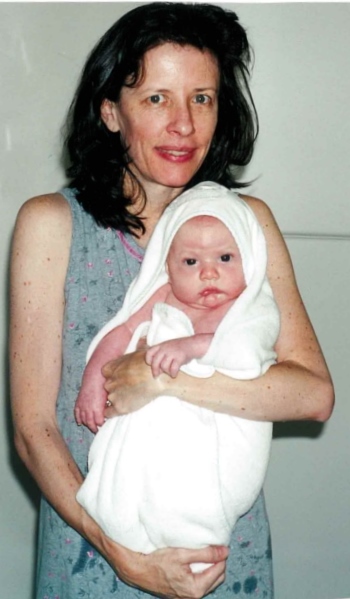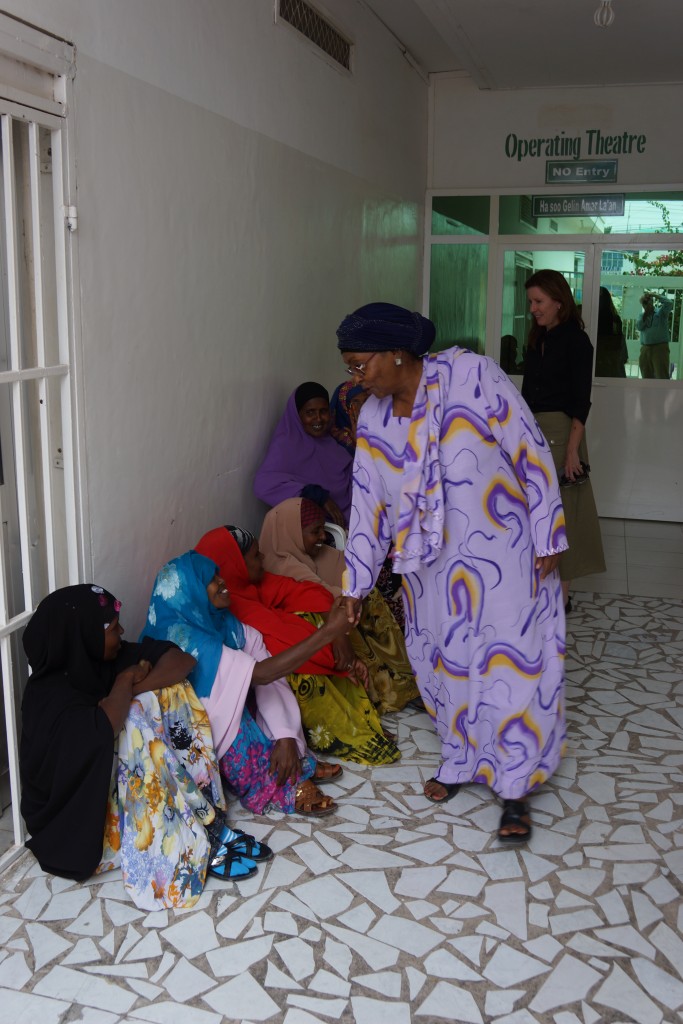Like so many first-time mothers-to-be in the U.S., I attended childbirth classes regularly before the birth of my now 15-year old-son. While those classes are largely a blur, I do remember one exercise: tightly gripping an ice cube for 60 seconds while breathing deeply to help replicate the pain that comes from a contraction. REALLY?! Looking back, it’s as if someone who’d never had an actual contraction came up with that exercise; the chill of the ice cube was about a .5 on a 1 to 10 pain scale, where, for me, full-on labor contractions were more like a 12.
While my goal was a “natural” drug-free delivery, eight hours of intense contractions and only three centimeters of dilation obliterated that wish. I finally decided I just wanted the excruciating pain to end. When the anesthesiologist approached with a needle that seemed to be the length of a pool cue to insert in my spine, I felt relief, not dread.
Ten hours later, when my OB/GYN said she thought it was time to consider a C-section, she asked what I thought. She clearly had a lot more relevant experience here than I did, so I took her advice: I underwent C-section surgery and delivered a healthy baby – a bruised ego and a scar the only remnants of my ‘failed’ vaginal delivery.

But here’s the thing: at key points throughout this process I had a say in what happened to me, and I was treated with care by the team that delivered my son at New York Cornell Presbyterian Hospital. Recently published research indicates that for many women living in the developing world, where they are too often seen as second class citizens, they face abuse during labor rather than the respect and dignity they deserve.
According to a new report published by PLOS Medical and based on information from 34 countries, women can face a range of abuse from health workers during childbirth, including outright neglect, verbal condescension, pinching or slapping, and sexual abuse, among others. Such treatment can turn what should be a joyful experience into a traumatizing one, and as a result some women would simply rather deliver at home and take their chances. Can you blame them?
A woman in sub-Saharan Africa has a 1 in 16 chance of dying in childbirth, compared to a 1 in 4,000 risk in developed countries, reflecting a greater disparity between the haves and have-nots of the world than any other single health indicator. To make things worse, for every woman who dies, at least 20 more suffer devastating infections or injuries like obstetric fistula, a condition that results from prolonged obstructed labor and renders a woman incontinent.
The reasons behind these statistics are many, but one of the biggest is that far too many women are still giving birth without skilled medical assistance. According to the UN’s final report on the Millennium Development Goals, which was released this month, only about half of births in Africa happen with skilled care, leaving moms and babies alike vulnerable to death and injury when complications arise. This latest research about how women are treated in labor gives us further proof of just how far we have to go. White Ribbon Alliance has done a terrific animated video that provides a compelling window into this overlooked issue.

While every day I am grateful for my healthy and thriving son, who is growing up too quickly before my eyes, I know that far too many women are not able to share my experience of a safe delivery with respectful care.
The lack of quantity, but also quality, in medical care is stalling progress in the reduction of maternal deaths worldwide. At Fistula Foundation, we’ve worked with partners in 30 countries in Africa and Asia who are carefully vetted and staffed by local nurses, dedicated doctors and care workers who share our ethos of providing the best care possible to the women we treat.
There are many unsung heroes helping women get the maternal health care they deserve. People like Edna Adan in Somaliland, Alison Shigo and her organization Healing Hands of Joy in Ethiopia, and Andrew Browning, Maggie Bangser and Professor Mwaikambo of Maternity Africa in Tanzania are a few of my favorites. Each of these visionaries is striving to create a world where bringing a baby into it will still be a truly wonderful life-changing event, rather than a life-ending event, for would-be moms and their babies.